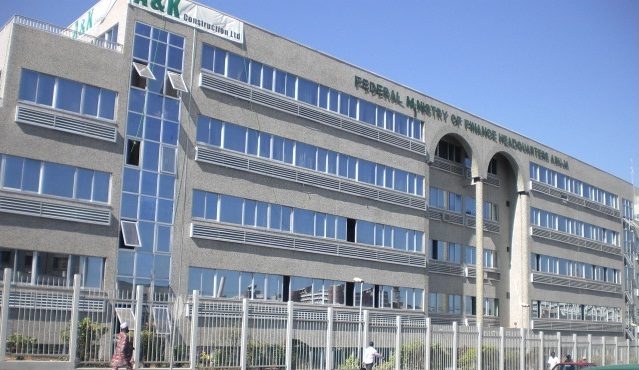With foreign reserves rising to $40.11 billion as of July 18, Nigeria now has enough buffer to cover around 10 months of imports, offering a rare sense of stability in uncertain economic times. The Central Bank of Nigeria (CBN) says the stronger reserves, paired with a slight easing in inflation to 22.22 per cent in June, could provide businesses and households with much-needed breathing space as the country navigates its economic recovery. Precious Ugwuzor reports
Against all odds, Nigeria has continued to witness significant improvement in macroeconomic indicators as seen in the rise moderation in inflation rate and growth in foreign reserves.
These macroeconomic advantages include the progressive narrowing of the gap between the official and parallel market rates as well as positive balance of payments.
The FX reforms, instituted by the Olayemi Cardoso-led Central Bank of Nigeria (CBN), new policies instituted by the Federal Government to boost local production, reduce forex demand pressure, and lessen domestic prices have been instrumental to macroeconomic stability.
The expectations are that the apex bank sustains the forex reforms while the fiscal authority strengthens efforts at enhancing FX earnings, especially from gas, oil and non-oil exports.
Analysts said such moves will be sustaining inflation drop as seen in the last report released by the National Bureau of Statistics (NBS) which revealed that the annual headline inflation eased by 0.75 per cent to 22.22 per cent in June from 22.97 per cent in May. The drop was largely driven by base effects, continued FX stability, and minimal volatility in energy prices.
Domestic economy / capital inflows
The domestic economy shows that economic activity remained on a firm upward trajectory in Q2-25, supported by easing inflationary pressures and naira stability, both of which have strengthened business confidence and production.
The CBN composite Purchasing Managers Index (PMI) averaged 52.2 points in Q2-25 indicating broad-based expansion across the agriculture, industry, and services sectors.
In emailed report to investors, analysts from Cordros Securities said: “We expect inflation to remain on a downward trend, especially as the naira is projected to remain stable. Additionally, we expect petroleum product prices to remain stable, supported by low global oil prices, which should help maintain steady transportation costs”.
They explained that capital inflows have equally rebounded since global financial pressures eased in May. The elevated naira yields and a stable FX market continued to attract foreign portfolio investments and bolster investor confidence.
Specifically, inflows from foreign investors surged by 315 per cent to $2.73 billion in June, the highest since March 2019, from $657.4 million in April, with Foreign Portfolio Investment (FPI) inflows accounting for 97.2 per cent of total foreign inflows. The rebound in inflows led to a decline in CBN interventions in forex market as demand pressures waned.
On the other hand, Nigeria’s external reserve has risen to $40.11 billion as of July 18, 2025, making it the highest level recorded since November 2024 when it hit $40.11 billion.
The $40.11 billion reserve level representing approximately 10 months of import cover, signals a significant boost to country’s foreign currency buffer.
This was disclosed by Cardoso during the 301st Monetary Policy Committee’s (MPC) meeting in Abuja. He explained that the rise in foreign reserve marked a significant rebound in Nigeria’s foreign currency buffers amid ongoing efforts to stabilize the exchange rate and rebuild investor confidence. The reserves spike happened despite relatively stronger CBN market intervention this year and external debt servicing as well as weak oil receipts.
Looking ahead, the analysts expect robust FX liquidity from both foreign and local sources, driven by strong market confidence, to continue supporting naira stability in the near term.
Looking ahead, analysts expect headline inflation to ease further in July, supported by a moderation in both food and core inflation components.
“Specifically, we anticipate the slowdown in food prices to be supported by improved market supply from early green harvests and the relative stability of the naira, which is expected to reduce pressure on imported food prices. Similarly, core inflation is projected to remain broadly stable, supported by a reduced exchange rate pass-through effect and steady energy prices,” they said.
Multiple FX sources activated
The CBN under Cardoso is cultivating multiple FX sources to increase dollar inflows, boost dollar access to manufacturers and retail end users.
From moves to improve diaspora remittances through new product development, the granting licenses to new International Money Transfer Operators (IMTOs), implementing a willing buyer-willing seller FX model, and enabling timely access to naira liquidity for IMTOs, the apex bank has simplified dollar-inflow channels for authorized dealers and other players in the value chain.
The move has led to substantial accretion to the gross FX reserves and supported the stability of the naira.
Given that FX inflows to the economy are strategic in achieving monetary and fiscal policy stability, the CBN under Cardoso puts in a lot of efforts in attracting more inflows into the economy.
Diaspora remittances to Nigeria, estimated at $23 billion annually remain a reliable source of forex to the domestic economy. There are also other sources and policies that are being explored by the apex bank to keep dollar inflows coming.
The CBN’s initiatives have supported continued growth in these inflows, aligning with the institution’s objective of doubling formal remittance receipts within a year.
The remittances in the economy is expected to increase based on CBN’s ongoing efforts to bolster public confidence in the foreign exchange market, strengthen a robust and inclusive banking system, and promote price stability, which is essential for sustained economic growth.
Director of Trading at Verto, Charlie Bird, said dollar liquidity dynamic is now more balanced, with foreign investors and airlines able to repatriate funds.
Speaking during Cordros Asset Management seminar titled: “The Naira Playbook”, he said Nigeria is now darling of foreign investors because of improved dollar liquidity in the economy due to positive CBN’s reforms.
Oil production rise aids disinflation
In emailed report, Managing Director, Afrinvest West Africa, Ike Chioke, said crude oil production data from the Nigerian Upstream Petroleum Regulatory Commission (NUPRC), captured the OPEC Monthly Oil Market Report (MOMR), and the Consumer Price Index (CPI) data by the National Bureau of Statistics (NBS).
“Starting with the crude oil production related subject, both the NUPRC data and OPEC’s monthly oil report affirmed that Nigeria’s daily average crude oil production improved by 3.6 per cent month-on-month in June 2025 to 1.5 million barrels per day (mbpd).”
“By adding condensate, total output cleared at 1.7mbpd, marking a 2.4% increase in average crude oil and condensate production over the previous month. The June crude oil production performance marked the second highest monthly average in 2025, with January’s 1.54mbpd performance (1.74mbpd including condensate) still the strongest,” he said.
According to him, output rebound from major terminals – Forcados (up 9.5 per cent m/m to 8.8mbpd), Odudu (up nine per cent m/m 20 2.1mbpd), Qua Iboe (up 2.3 per cent to 5.1mbpd), and Bonny (up one per cent to 7.2mbpd) – more than offset losses from Brass (down 15 per cent m/m to 0.9mbpd), Escravos (down 8.7 per cent m/m to 4.2mbpd), and Tulja-Okwuiboime (down 4.5 per cent m/m to 2.1mbpd) terminals.
“Contextualising the economic impact of the modest improvement in the crude oil production level for the month (excluding condensate as there is no formal pricing guide), we estimate that Nigeria earned a daily average revenue of $105.0m in June from its crude oil production (given average price of $69.73/bbl), representing a 13.6 per cent improvement over May. Relative to the prior five months, our estimate suggests that the daily average revenue for June is the third highest after January ($122.3m at average price of $79.46/bbl) and February ($112.5m at average price of $76.81/bbl),” he said.
Bringing all of this together, we maintain our position in the recently published H2:2025 outlook report that Consumer Price Index rebasing impact on the base year would largely support a sustained decline in the headline inflation rate till the end of Q3’2025, thereby causing a divergence between statistical reading and consumers’ experience on the street.
“Against this backdrop, our model projects the headline rate to ease to 21.6 per cent in July, though m/m reading is expected to increase to 1.75 per cent as against 1.68 per cent in June,” Chioke stated.
As naira rallies, import costs to dip
Import costs have been tipped to drop significantly as the naira continues to gain more ground across markets.
The naira appreciated significantly last week, strengthening from N1,580 to N1,530 per dollar, a gain of about 3.25 per cent at the parallel markets. The local currency exchanged at N1,536 per dollar at the official markets, creating N6 per dollar rate gaps between both markets.
Importation costs in Nigeria include various taxes and charges, primarily import duties, VAT, and other levies. These costs are calculated based on the CIF value (Cost, Insurance, and Freight) of the goods, which includes the cost of the goods, insurance, and shipping.
The cost, insurance and freight (CIF) price is the price of a good delivered at the frontier of the importing country, or the price of a service delivered to a resident, before the payment of any import duties or other taxes on imports or trade and transport margins within the country.
Changes in exchange rate can significantly impact the cost of imports, as duties and other charges are often calculated based on the prevailing exchange rate.
Nigeria’s total Imports in 2024 were valued at $40.97 billion, according to the United Nations COMTRADE database on international trade. Nigeria’s main import partners were: China, Belgium and India
New figures from the National Bureau of Statistics (NBS) reveal that Nigerian imported food and beverages worth N1.67 trillion ($1 billion) during the first quarter of 2025 (January–March), reflecting a five per cent increase from the N1.59 trillion recorded over the same period in 2024.
Analysts from Cordros Securities said the naira appreciation helped cushion the impact of the spike in imported fuel prices triggered by tensions in the Middle East.
“We expect FX liquidity to remain robust, supported by reduced global pressures and stronger market confidence, which continues to attract inflows from foreign portfolio investors (FPIs). Additionally, a stronger net FX reserve position enhances the CBN’s capacity to intervene when necessary. Barring any unexpected shocks, we anticipate that the naira will remain stable in the near term,” they said.
While Nigeria is making strides toward fuel self-sufficiency, it still relies on imports, as seen in the reduced import bill for the first quarter. This indicates a decline in fuel imports but not a complete elimination.
Already, trade tensions have softened from the tariff hike announcements in April. The US President paused the implementation of reciprocal tariffs, allowing countries to negotiate lower tariffs for 90 days, which was recently extended to August 1.
The post Hope in the Numbers: How Nigeria’s Rising Reserves and Falling Inflation Could Ease Everyday Struggles appeared first on THISDAYLIVE.


